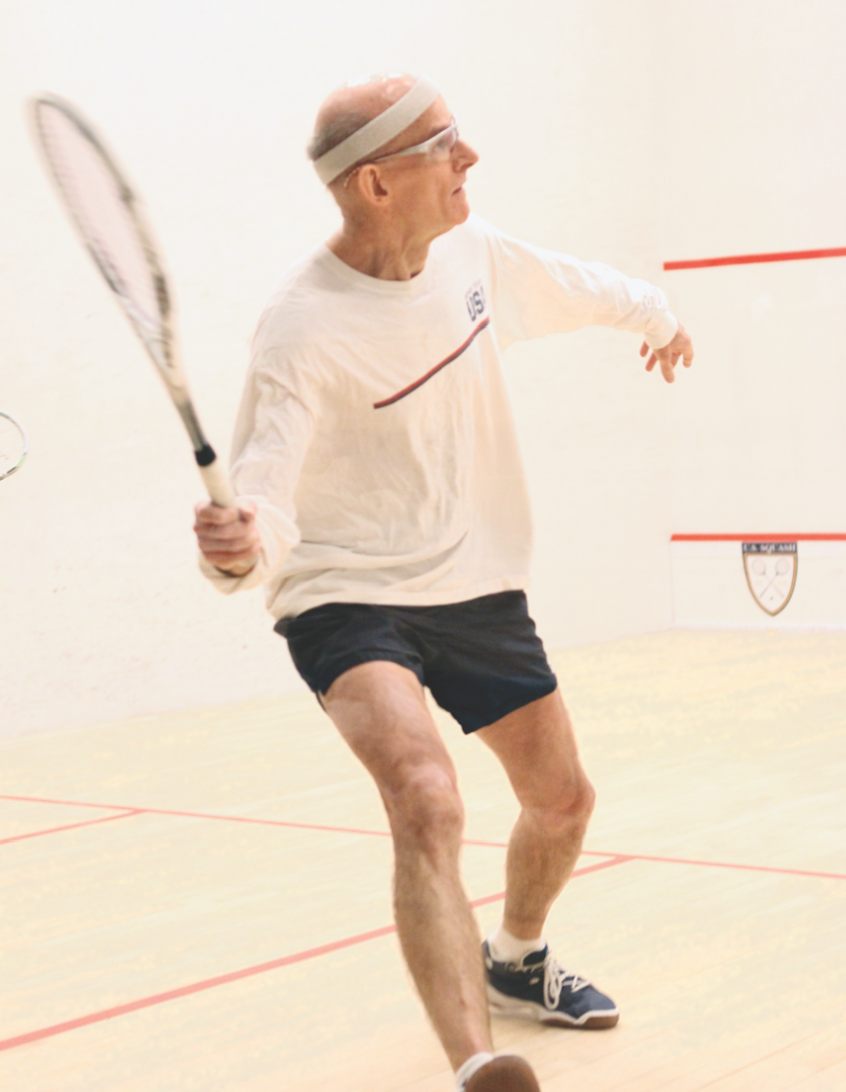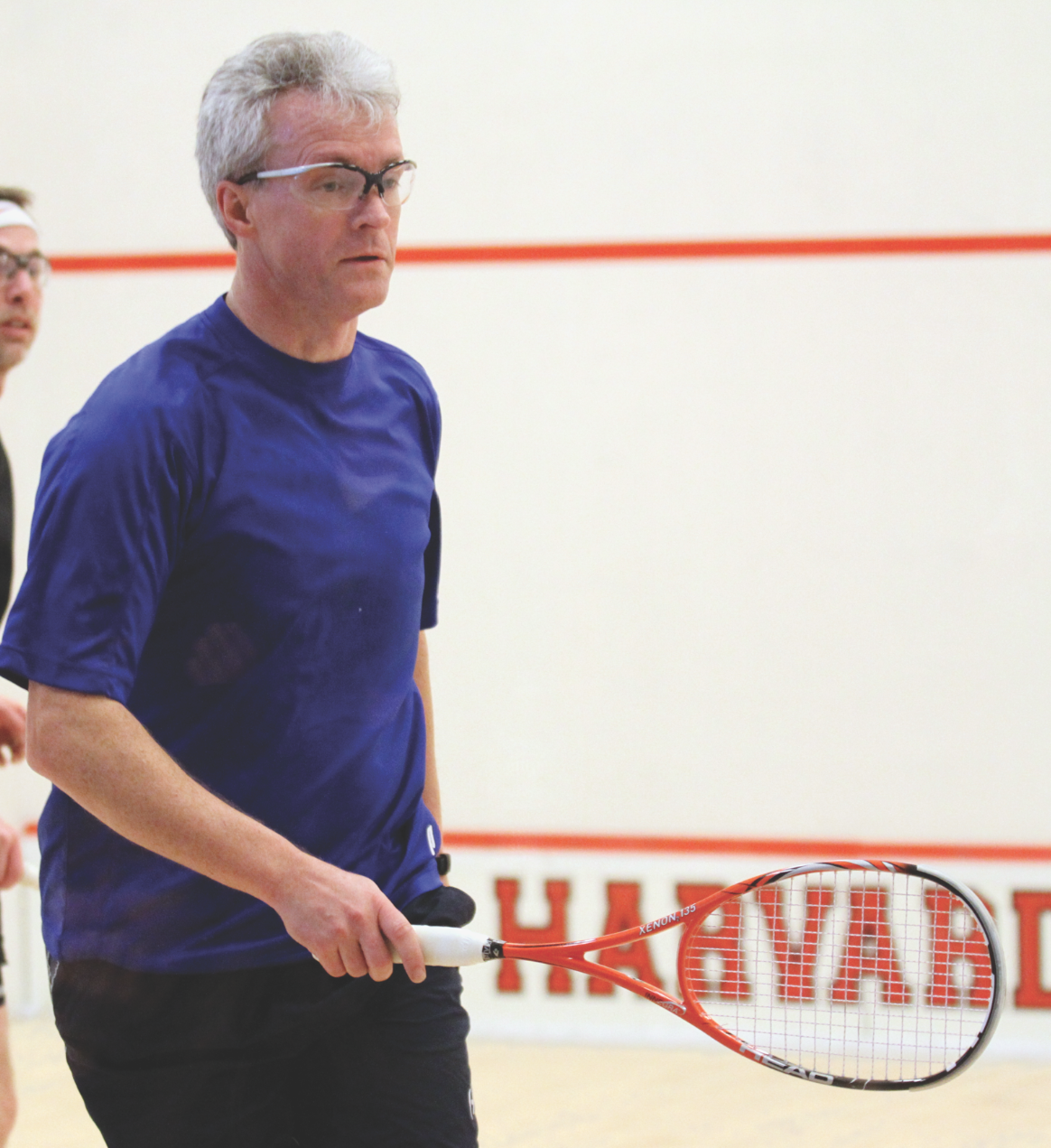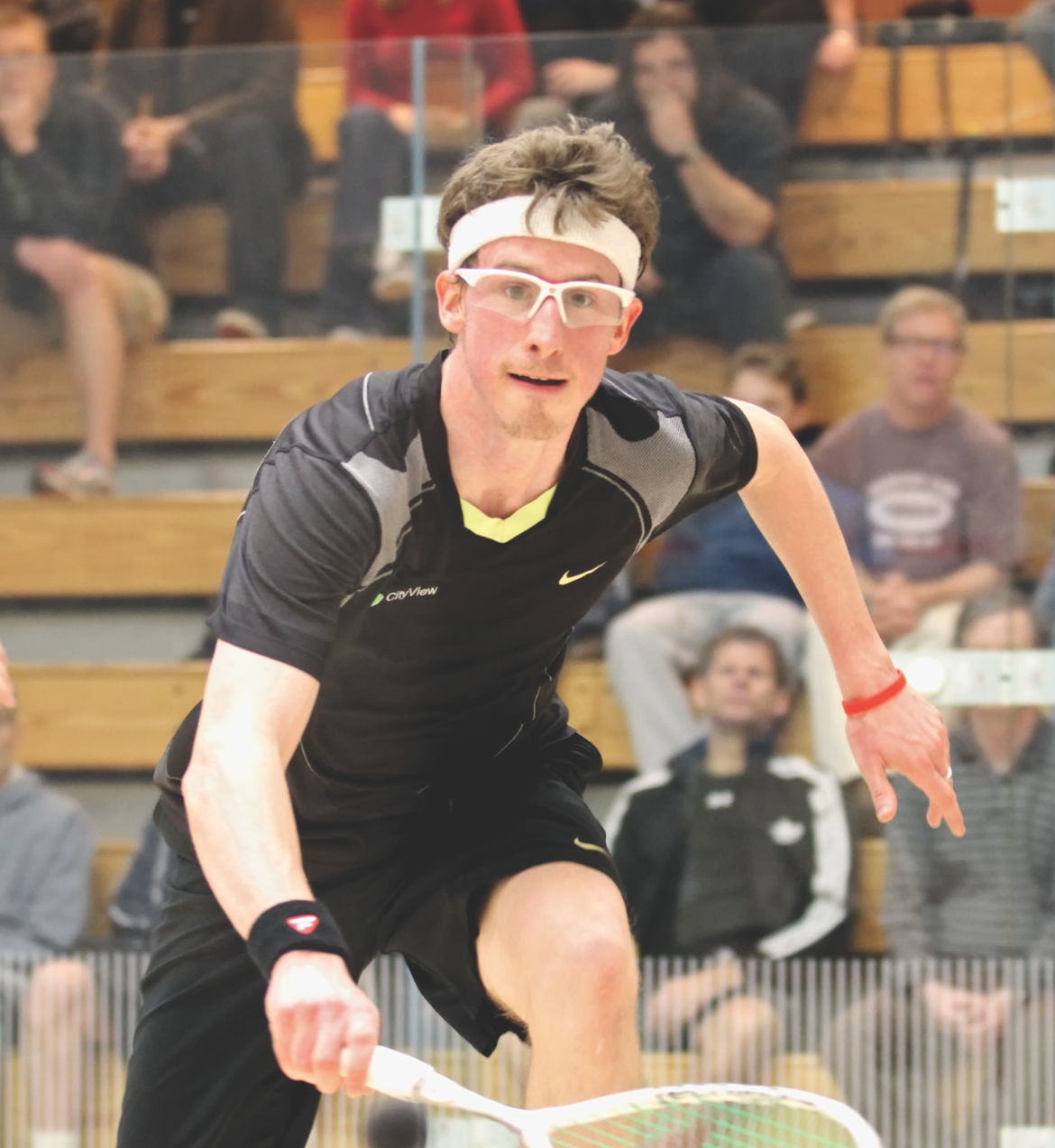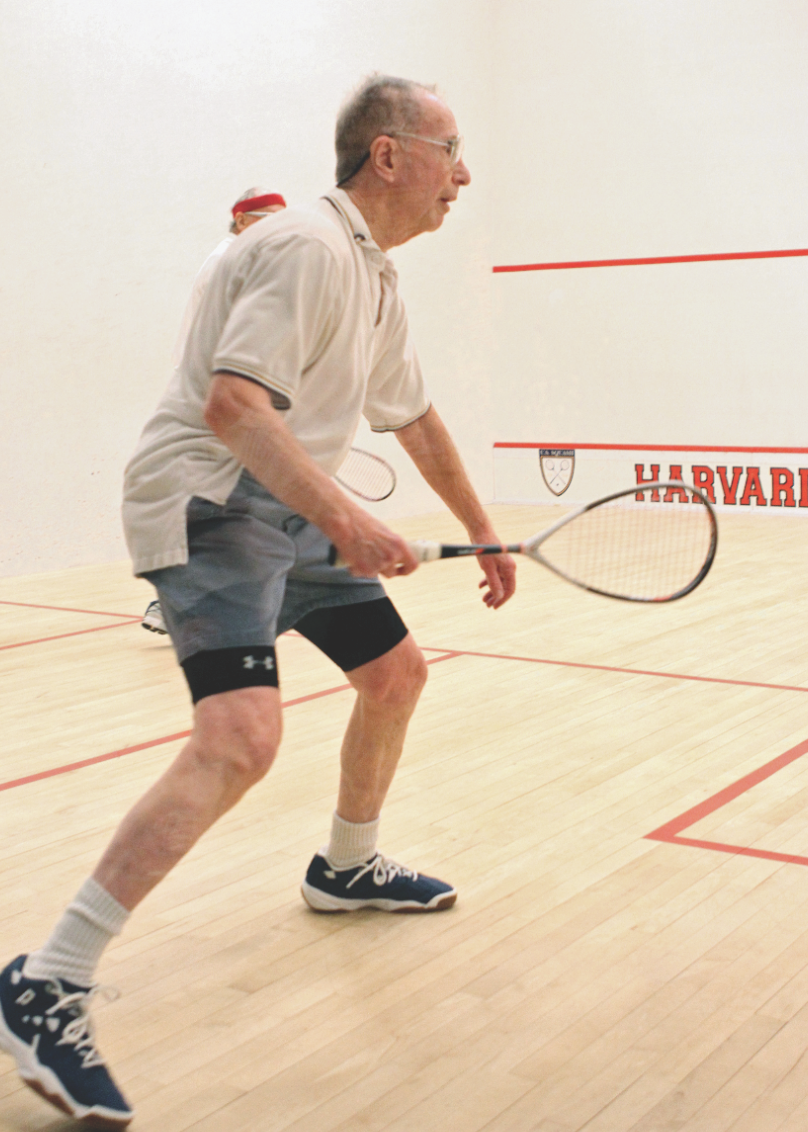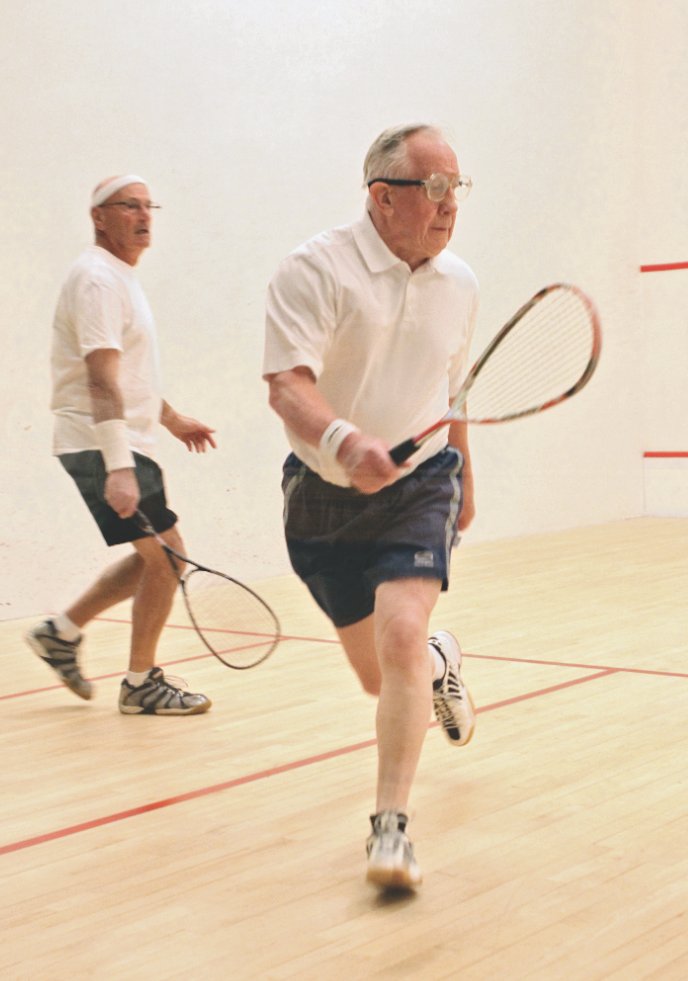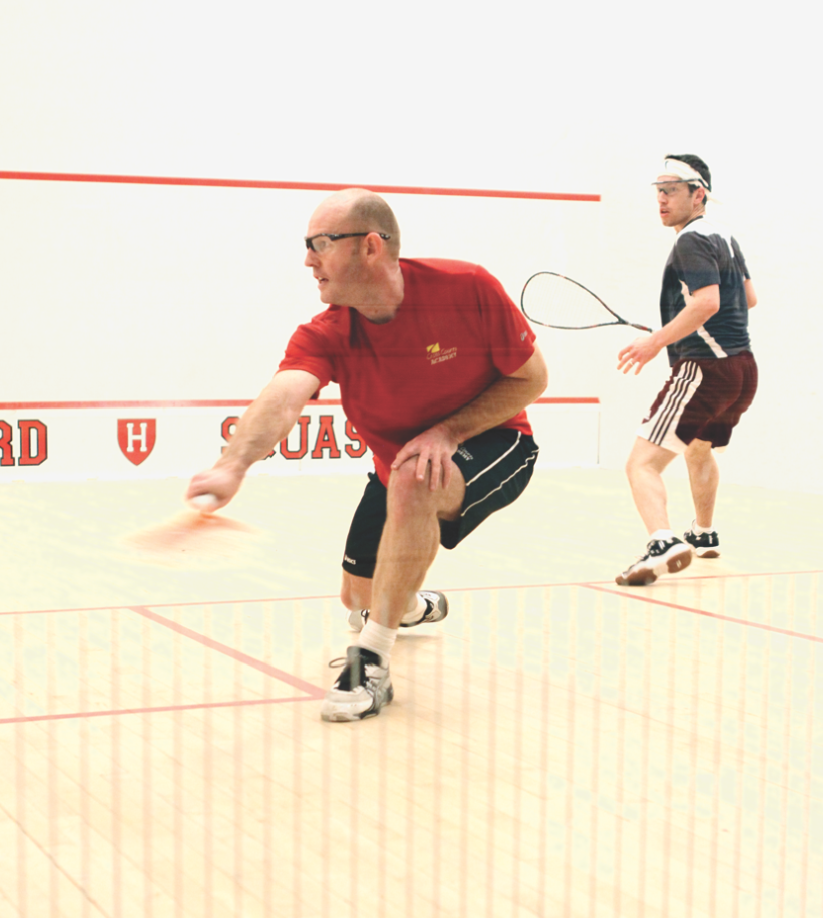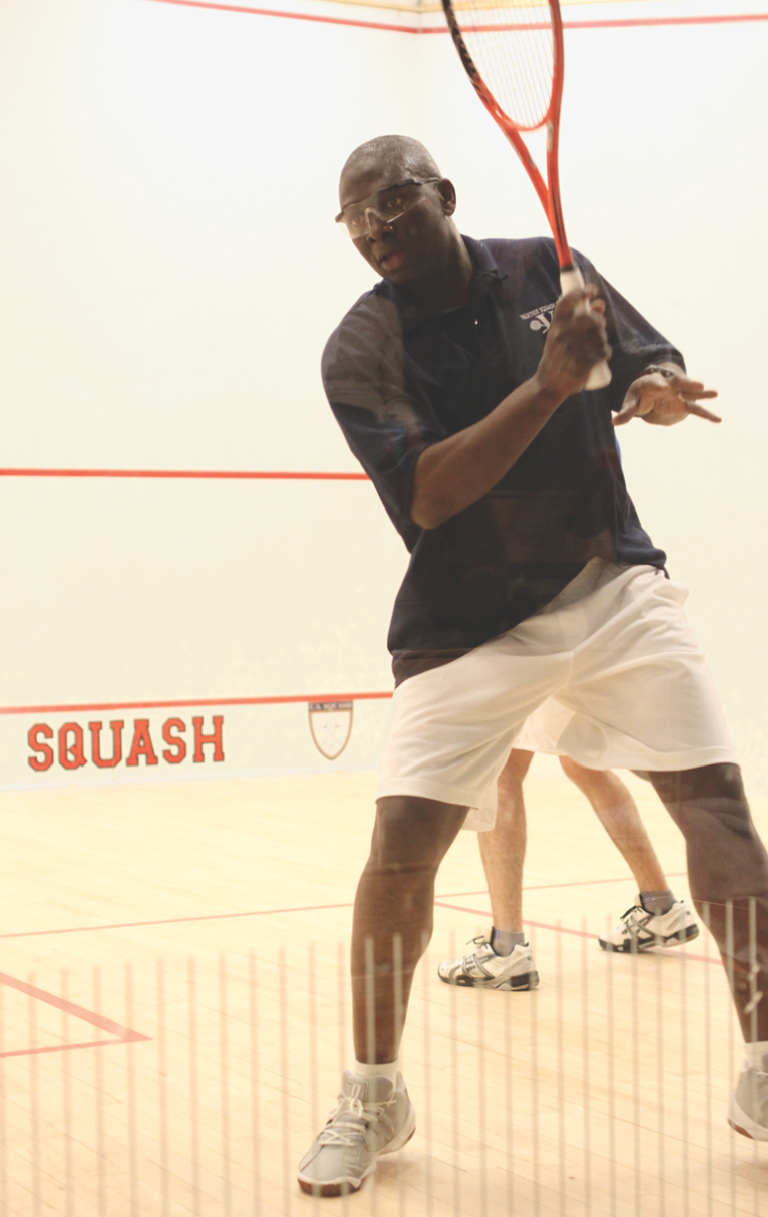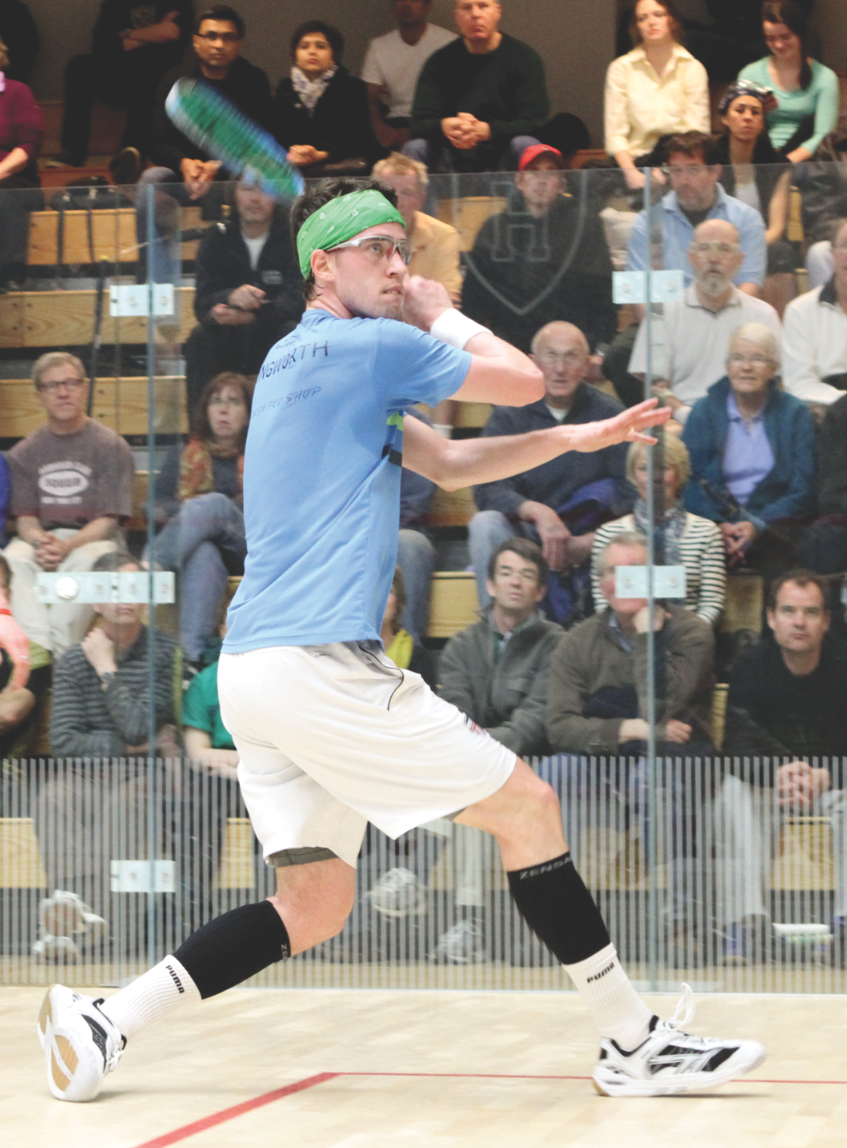Article and photos by Jay D. Prince

The most difficult thing for me to do as a writer is to find unique ways to capture the story emanating from annual events. That objective is made much more challenging when the same individuals or teams keep winning, year after year. For example, during the eye-popping run the Trinity men’s squash team made through the college game, my interest waxed and waned, primarily because the only thing that changed from one season to the next was the names on the roster. That being said, my interest perked up tremendously each of the few times that Princeton nearly ended the Bantams’ dominance.
The S.L. Green is proving to be another annual challenge, though certainly not for Julian Illingworth. While I’m sure it hasn’t been as easy as it looks, Illingworth has now extended his personal ownership of the title to eight straight—breaking the record for consecutive U.S. Championship titles previously held by Alicia McConnell, and just one short of the total won by Demer Holleran. Illingworth stands alone on the men’s side.
Since first winning the title in 2005, Illingworth has been pushed to five games just twice—in Portland, facing Preston Quick in the finals on Illingworth’s home courts in Portland (2007) and last year, when Princeton’s Todd Harrity recovered from a two-game deficit only to drop the fifth, 11-3. But that’s it. Illingworth has dominated the event like no other, though he says this year presented some unique challenges.
“This was a tough year to win,” reflected Illingworth. “I was injured most of the fall and through to January/February, so I was racing to get back healthy before Nationals. Chris [Gordon] had been playing a lot better and was well aware of my struggles, so he had a little more confidence than in years past while playing me.”
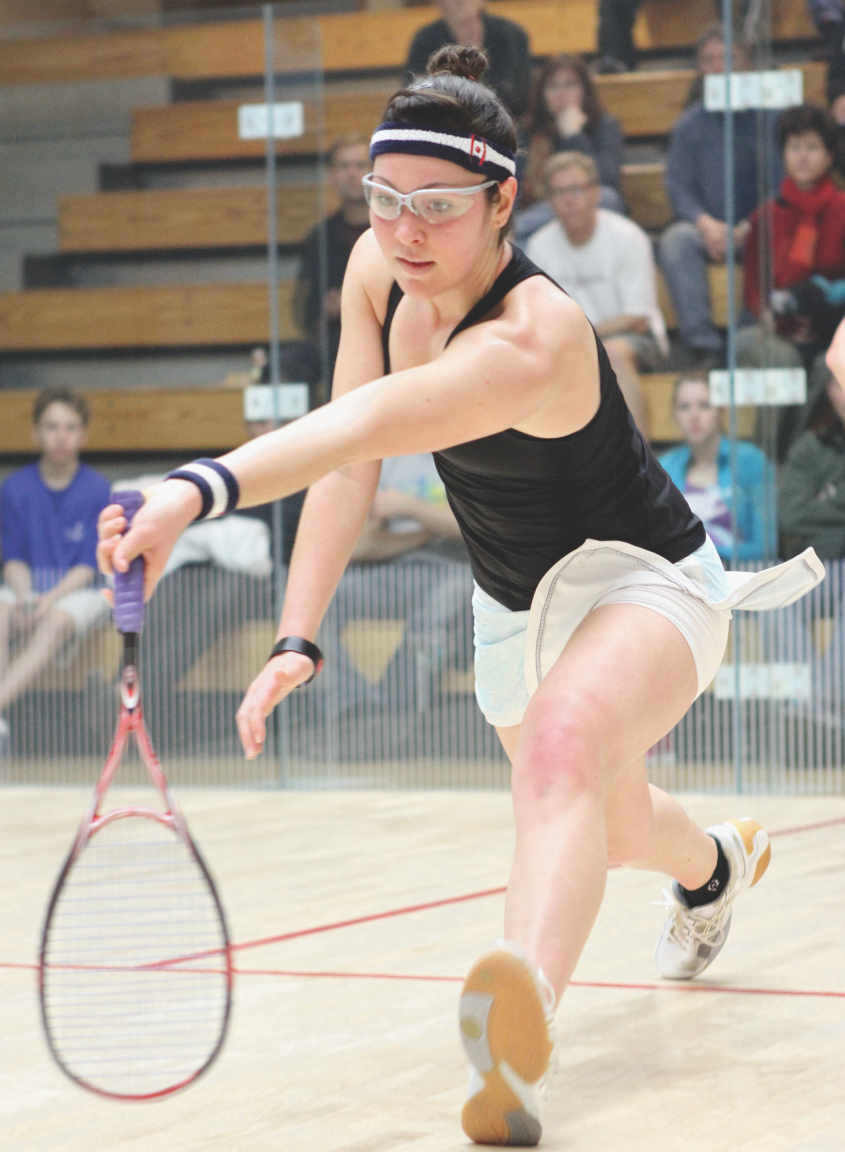
Nerves and pressure appeared to hold Illingworth back in the early stages of this year’s final against Gordon, as Gordon jumped on Illingworth early to secure the first game, 11-6. Sometimes, however, coaches can make a difference between games. For Illingworth, it was his wife who helped flip a switch.
“My wife came down after the first game and said something that was pretty profound,” Illingworth explained. “She said, ‘Julian, you look like you’re not having any fun out there. Enjoy it—you play a lot better when you’re being creative and are relaxed.’” Turns out that was what the perennial champion needed to get him on track, because from there Illingworth gained control and finished out the match, 11-8, 11-9, 11-5.
“Easier said than done,” Illingworth said afterwards, “but I think just acknowledging and accepting the fact that I was nervous and uptight allowed me to relax and start moving the ball around and play how I wanted to play.”
When Illingworth knocked off Damien Walker to win his first Championship in 2005, Amanda Sobhy was 11-years-old and hadn’t won a thing. The world of squash knows a lot about Sobhy now, at least with respect to her playing ability. Titles in the Under-19 age groups, both the U.S. Open and Closed; an intercollegiate team and singles title as a freshman this year; a Junior World Singles title in 2010; and now her first title in the Women’s Closed at the U.S. Championships.
Two years ago, Sobhy reached the final where Natalie Grainger quickly shut her down in three games. This time, Sobhy was prepared to end Grainger’s own streak of five championships. With a merciless start, Sobhy hammered away on Harvard’s glass show court to take the first two games 11-1, 11-4, before Grainger took the third, 11-2. But that was as close as Grainger would get, as Sobhy took the first step toward creating her own winning streak with an 11-8 fourth game.
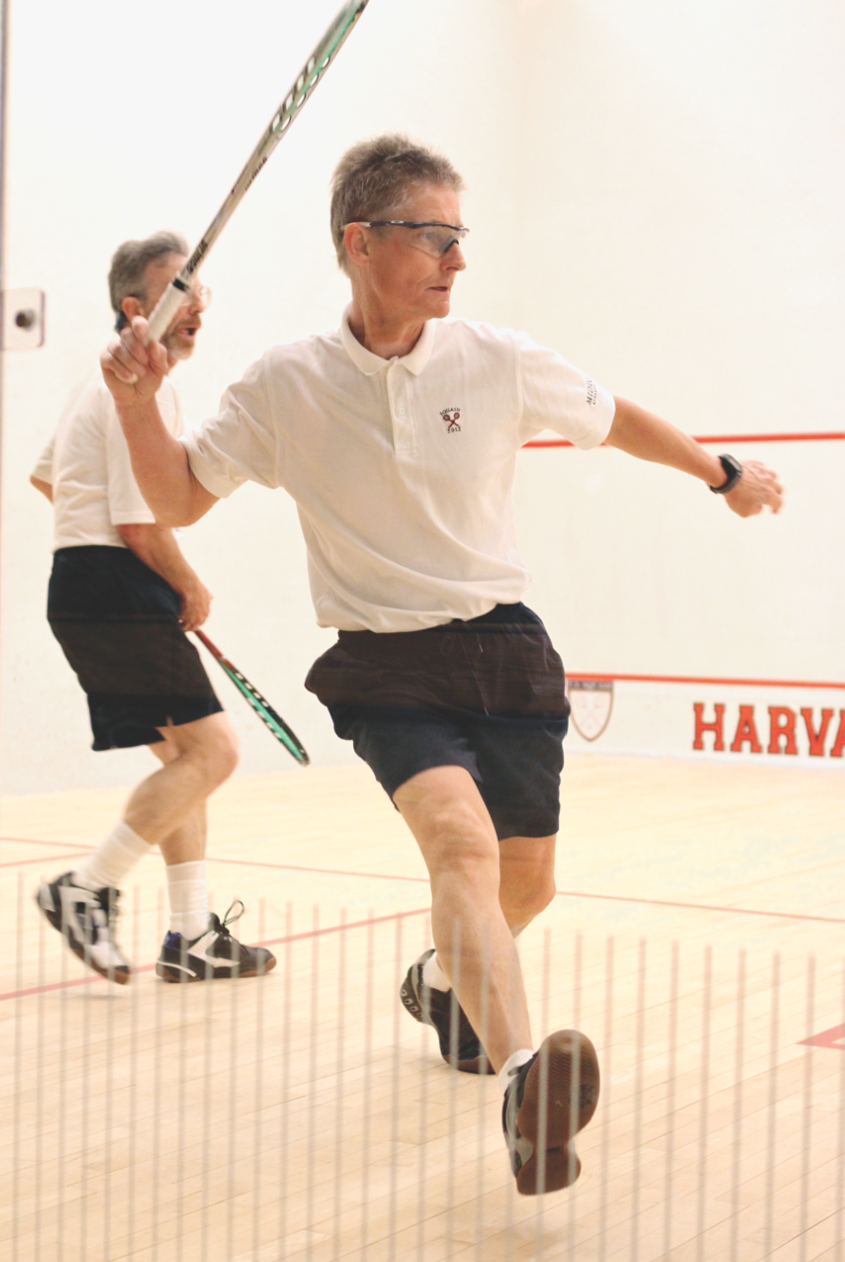
“I had a lot of motivation to get my name up on the board,” said Sobhy when asked about what drives her to compete. “The U.S. Championships has been going on for years and you see names like Julian Illingworth, Latasha Khan and Natalie Grainger who have won the title for so many years, so it’s nice to get up on the board with them.”
While this writer may not have a crystal ball, I suspect I’ll be struggling to find creative approaches to writing about Illingworth and Sobhy for many years to come. They are that good.
Ask any squash player why they play the game, and one of the first responses you’ll get is that it’s fun, challenging, and a great workout. You’ve undoubtedly heard, or uttered yourself, the reference to “physical chess.”
What generally goes unspoken, however, is the sadistic nature of the game. While quick to point out the pleasure we get from running ourselves into the ground, all in the effort to chase around a little black ball, the real gratification comes from pushing our opponents to do the same.
After the 2012 U.S. Masters Championships, one division winner owned up to his sadistic motivation when asked what drives him to play the game. Simply put, Dominic Hughes said, “The thrill of torturing my opponent.”
Of course, Hughes has had his fair share of success at torturing opponents over the years, and little changed this spring when he entered the Men’s 50+ for the first time and left with the title, dropping just a single game in the semifinals.
Hughes draws a crowd to all of his matches, in part because of his phenomenal ball control and decision-making, but he is also the picture of composure on the court. Never one to panic if things aren’t going as smoothly as he’s accustomed to, he simply looks for any combination of shots that will ultimately lead to exasperation and resignation by his opponents.
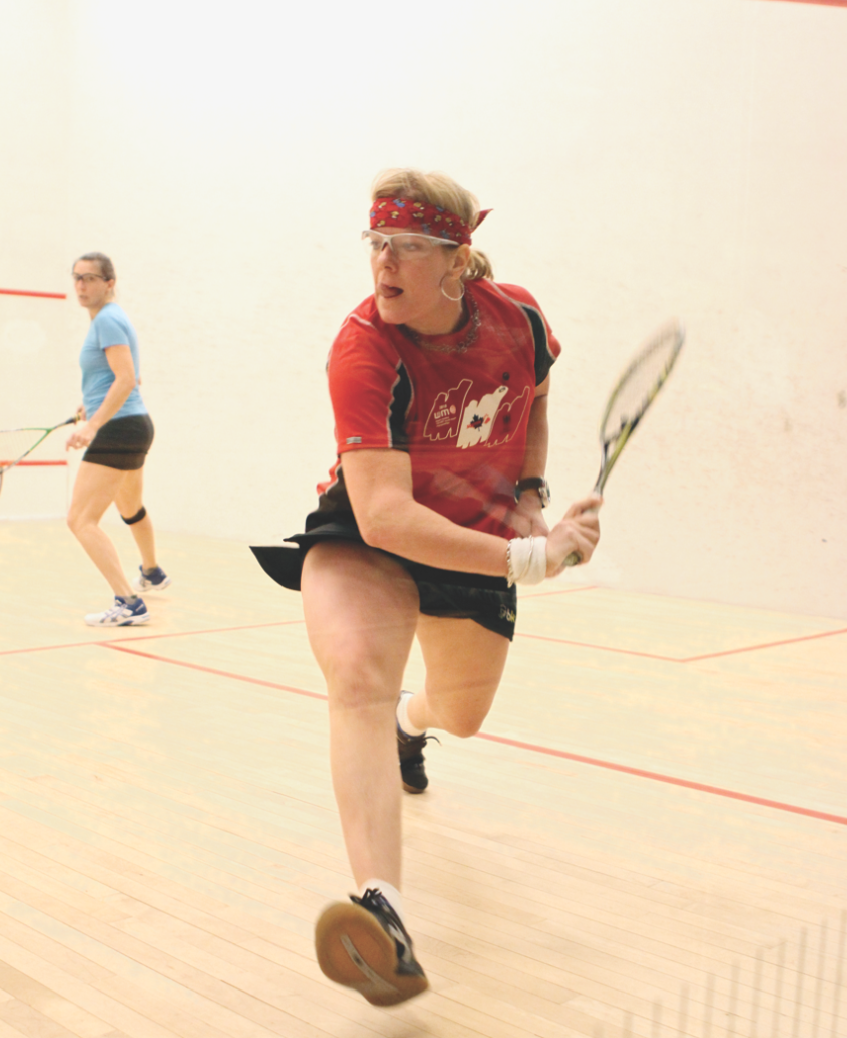
In the final, Mark Reed surprised Hughes in the early stages with his quickness and grit. Seemingly unperturbed by well-disguised slow boasts and use of the lob by Hughes, Reed kept the first game close until it reached 11—all—at which point Hughes secured the game. And with it, because of the effort expended by Reed, the second and third games too.
A newcomer to the U.S. Masters was Canadian Louise Lefebvre. In fact, she’s relatively new to the sport having picked it up just 15 years ago at the age of 30. While working as a tennis pro, Lefebvre picked up a squash racquet for fun during her lunch breaks, but it wasn’t long before she started playing tournaments. After six months, Lefebvre was the top-ranked woman in Quebec and didn’t drop a match for 10 years in the province. She also represented Canada in the Pan Am Federation Cup in 2002 (Quito, Ecuador).
But last fall, the idea of playing a national event in March seemed unlikely. Lefebvre was coming back from hernia surgery, and she suffers severe arthritis in her hands. Evidently a little cortisone in the thumbs and hard training was the recipe for success, as she ran away with the Women’s 45+ over top-seeded Wendy Ansdell in the final.
“In October I started training almost every day,” said Lefebvre, “and I hired a nutritionist. I lost 25 pounds and totally got back in shape.”
On the opposite end of the experience scale is Atlanta’s Tom Rumpler. After 42 years of squash, Rumpler has just captured his fourth Masters title, this time in the 60+. His previous three titles include one in each of the 45+, 50+ and 55+.
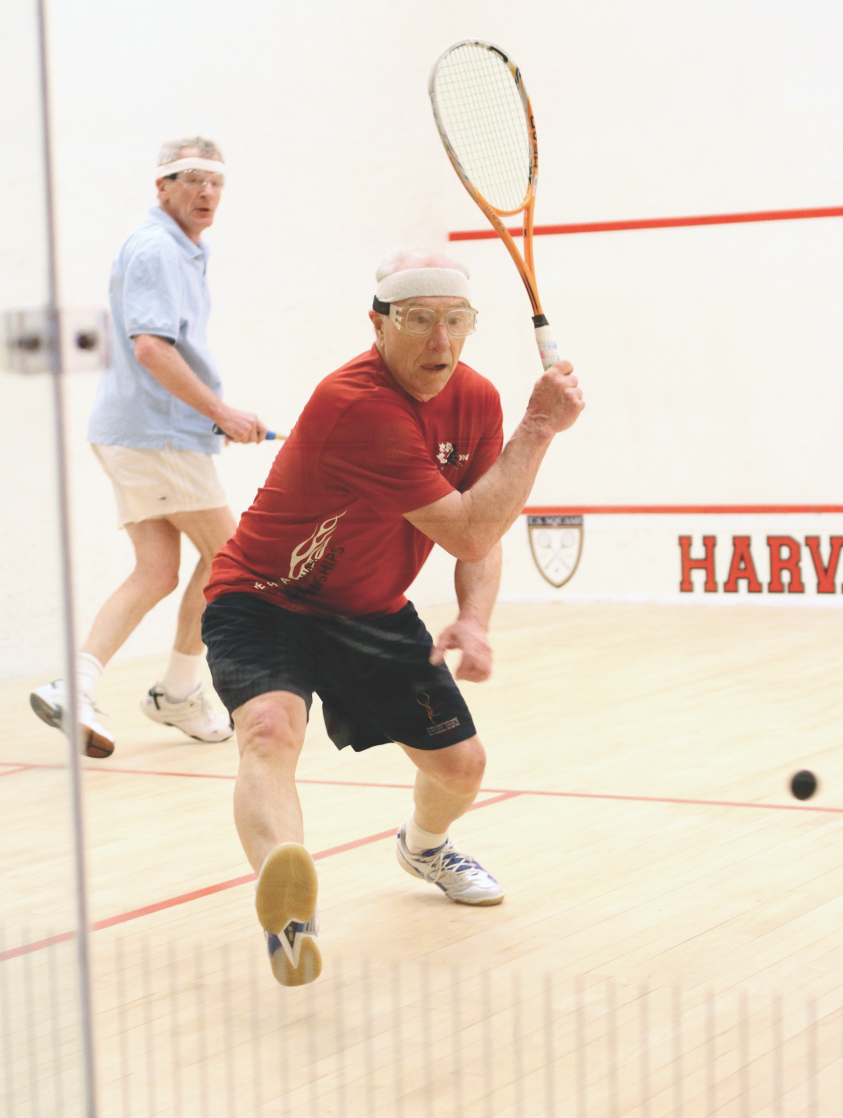
Always introspective, Rumpler says this year represented a paradigm shift for him. “Ever since we went to PAR-11 [scoring], I have struggled with the balance of risk/reward. Having almost always been the fitter player on court, in my age group, I could no longer rely on just lengthening the rallies to win.”
So after accepting that change in playing approach might work, Rumpler says he “embraced the ‘chop-chop,’ lots of unexpected drops, delayed boasts, early short cut-offs, followed up with measured length.”
The unfortunate finals victim of Rumpler’s new approach was Don Sheer who was looking for his first 60+ title after finishing as the bridesmaid in each of the last two years.
One player who made a seamless transition to PAR scoring is Jay Nelson. For 54 years, Nelson has been playing the game that he is driven to play because of the many different athletic attributes it requires—strength, coordination, speed, agility, stamina, creativity and intuition. Also on his list is doggedness, which might be the secret ingredient behind his 29 age-group titles (5 in hardball and a staggering 24 in softball).
Nelson is also driven to compete by an internal voice refusing to allow him to look back on a match and be forced to acknowledge that he lost because he didn’t try his hardest. He says it’s happened once before.
When asked to share something squash players probably don’t know, Nelson said, “Baseball was by far my favorite sport growing up. I struck out former Major Leaguer Mike Hegan (12 years in the Majors, mostly with the Yankees, Brewers and Athletics) in a Little League All-Star game in 1953.” Seems Nelson had a wicked curve ball.
Not to be lost on Nelson is his fitness. While some add a few pounds as they rise to different age divisions, Nelson looks as lean and mean as he did 15 years ago. So he always has that to rely on when pressed.
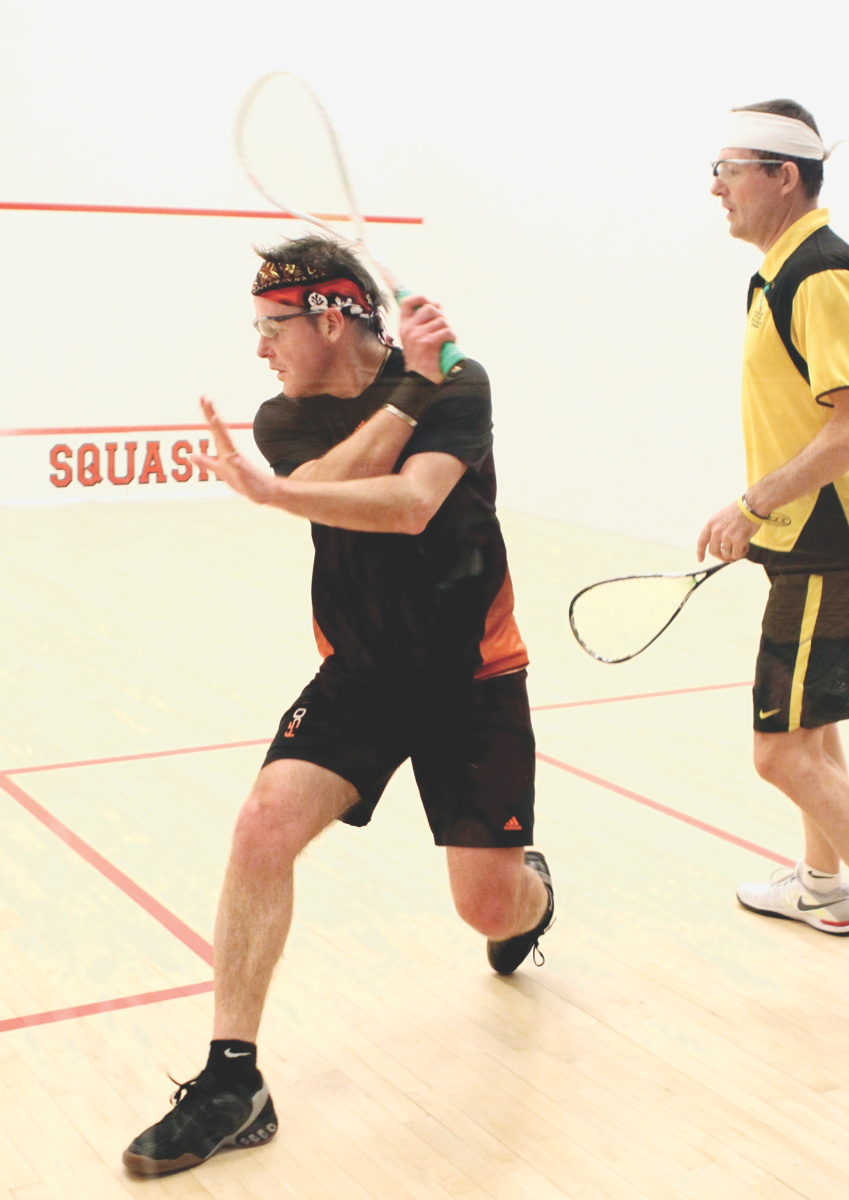 And so does Beth Fedorowich. For over 25 years, Fedorowich has been putting her degrees in Physical Education and Physical Therapy to use in her personal training business. Founded in 1986, Fitness Essentials, LLC, offers expertise in personal training, nutrition and yoga both in private homes and at health clubs in the Pittsburgh (PA) area.
And so does Beth Fedorowich. For over 25 years, Fedorowich has been putting her degrees in Physical Education and Physical Therapy to use in her personal training business. Founded in 1986, Fitness Essentials, LLC, offers expertise in personal training, nutrition and yoga both in private homes and at health clubs in the Pittsburgh (PA) area.
Fedorowich began her squash journey 20 years ago and first played the U.S. Masters in 2009 at Trinity. Success came immediately as she was runner-up in the Women’s 45+ in both 2009 and 2011, and she reached the semis in 2010. Moving up to the 50+ this year, Fedorowich swept her way to the title as the No. 2 seed, dropping the defending champion, Kathryn Cowper, 11-2, 11-7, 11-9.
In her college days at Slippery Rock University (outside of Pittsburgh), Fedorowich was a two-sport athlete in Basketball and Tennis, but basketball was her passion and she continued playing in a women’s league after college. Fedorowich also found success in triathlons and cycling, but once she found squash (something she used for her basketball training), she found that the requirements of hand-eye coordination and explosiveness, along with the fast-pace of the game, suited her well. Sounds like a squash player!
Finally, a trio of Canadian men, who have made the U.S. Masters their personal stomping grounds over the past five years, continued their winning ways this year.
Steve Wren hasn’t lost a match since first winning the 40+ in 2009 (repeated in 2010, then won the 45+ in 2011 and again this year). On the court, Wren is all business, putting on a dazzling display of shotmaking and court control. Off court, his humor and affable demeanor make it easy for him to catch up with friends and help new participants fit right in. When asked what drives him to play, the answer is simple: “A combination of physical effort, use of wit, experience, and the camaraderie amongst the community that the sport generates.”
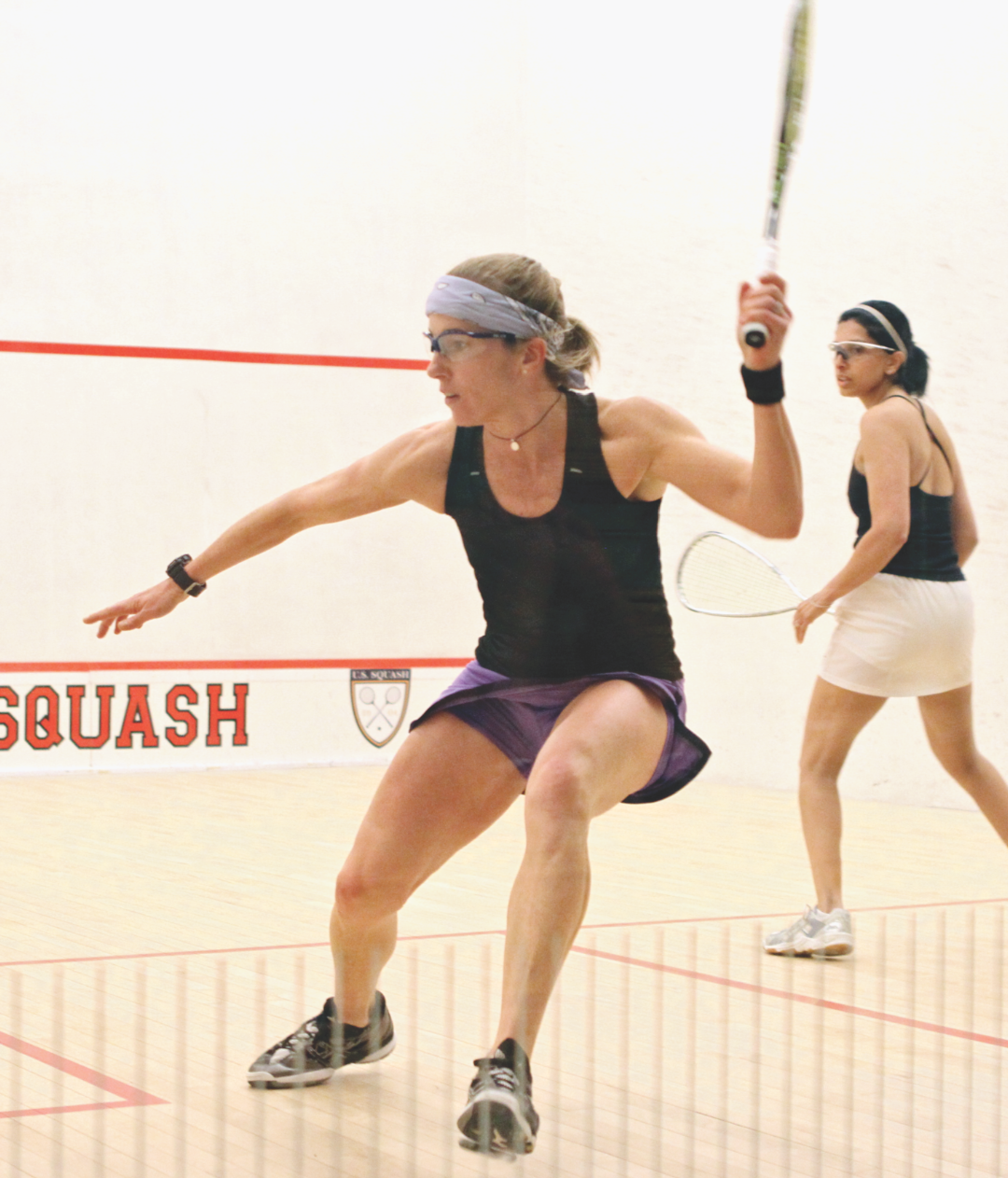
Originally from Christchurch, New Zealand, Wren says he landed in Canada in 1986, expected to stay for six months, but has now been firmly established for 26 years. Before launching his business career in the late 90’s, Wren was a squash pro in Toronto for 12 years—where he was the coach and guardian of one teenaged Jonathon Power.
Michael Bertin has found similar fortune at the U.S. Masters having won the 50+ in 2009 (sandwiched by runner-up finishes in 2008 and 2010) and the 55+ in each of the last two years. Like so many players, Bertin got hooked while at York University…36 years ago when a couple friends encouraged him to try the game! It was just a year later that he was playing on the varsity squad. A high school business teacher by day, Bertin has been coaching basketball and soccer for 30 years too. And while he’s enjoyed his success at Masters, this year had to have been especially sweet after suffering a herniated disc in May 2011 that left him with no feeling in his right leg and foot until late August.
Then there’s Gerry Poulton. Since first arriving at the U.S. Masters in 2009, he’s reached the 65+ semis twice (2009 and 2010) and was runner-up last year—all three of his losses came at the hands of Jay Nelson. In those three matches, Nelson outscored Poulton by a total of 13 points in two five-game matches and one in four. But this year, Poulton finally won the division by beating Ned Monaghan in a three-game final. Out- side the game, Poulton has a Doctorate in Organic Chemistry and retired a couple years ago after a 37-year career at the University of Victoria. Along the way, Poulton was the 1997 Science Teacher of the Year and the 1999 Excellence in Teaching award recipient.
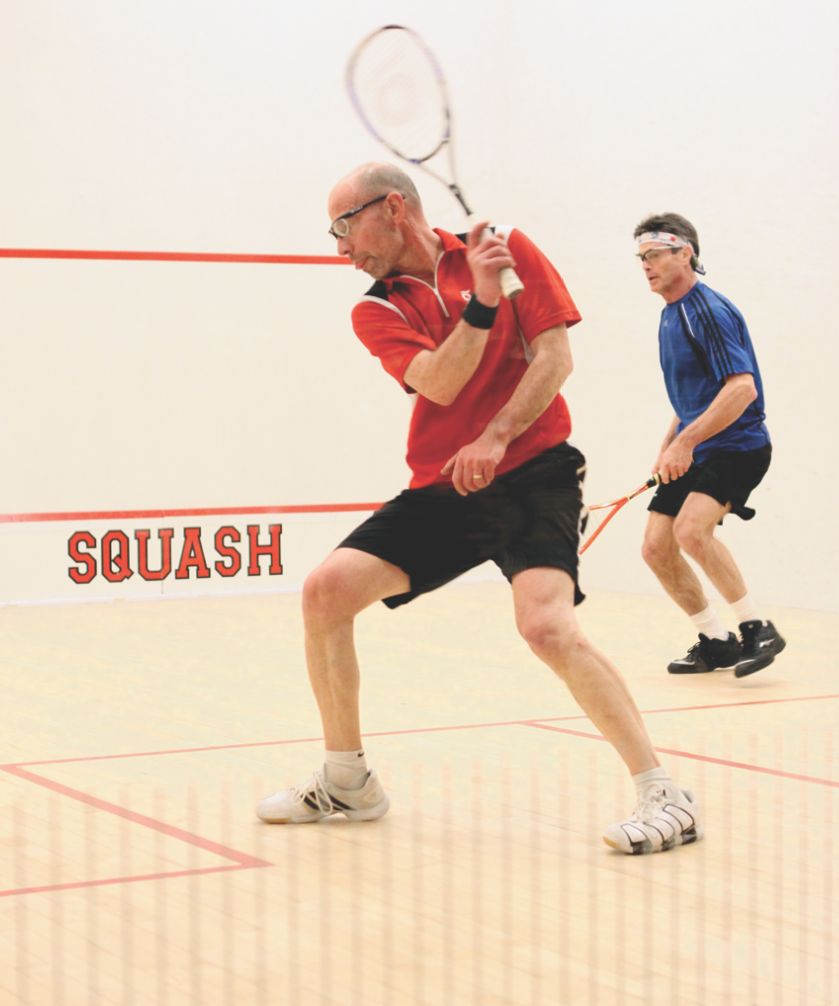
Though every player at the U.S. Masters quietly looks for the opportunity to wreak havoc on their opponents, all of them openly praise the camaraderie and social gatherings that are synonymous with the event. As Steve Wren put it, “[the Masters is] an opportunity for us to catch up on busy lifestyles in significant event that brings everyone together in the first place—no matter how long ago. It’s an important event that contributes to the broadening awareness of the North American masters squash community.”
